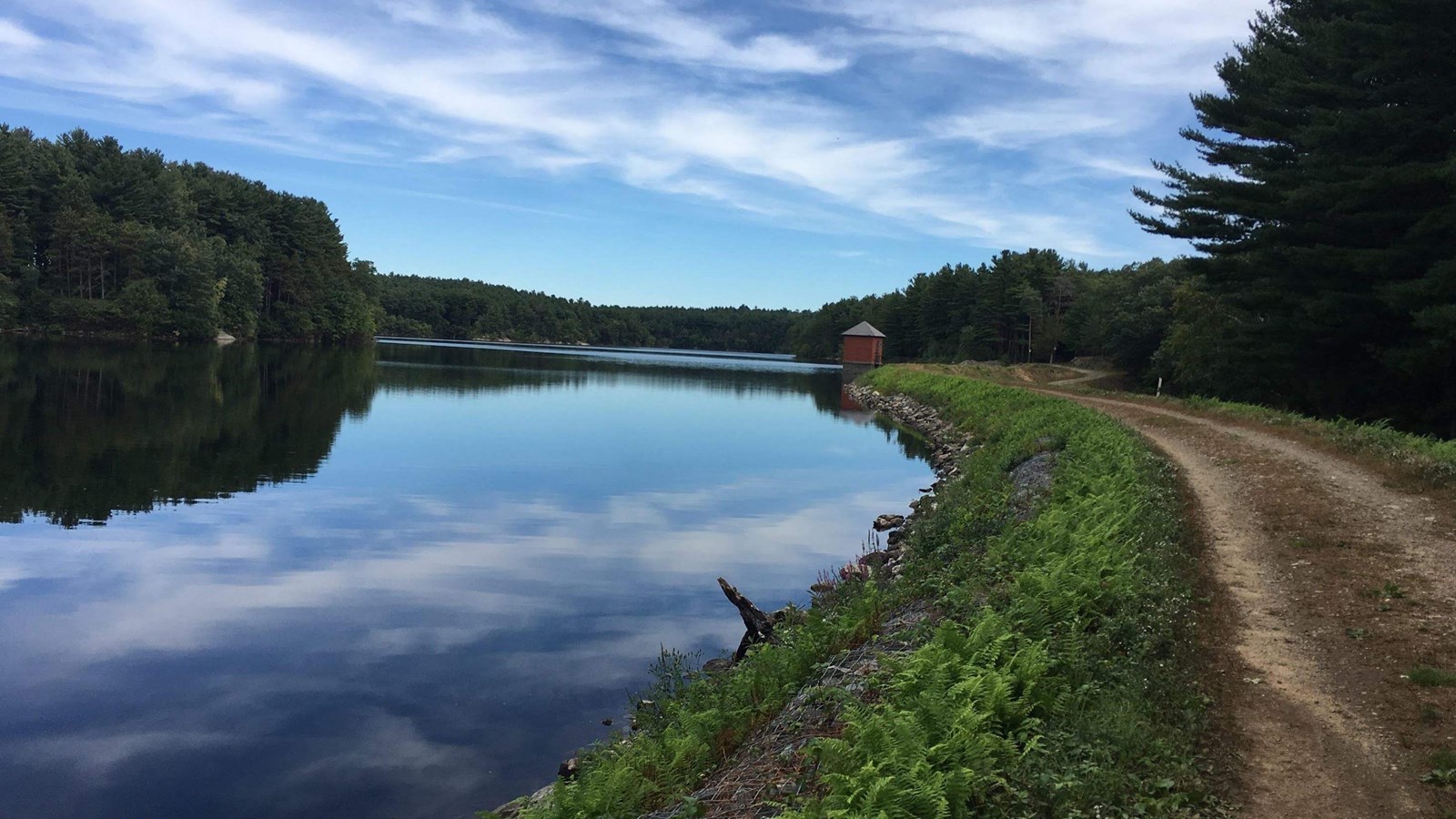Last updated: July 8, 2020
Place
Middlesex Fells Reservation

Photo by Srishti Sethi, CC BY-SA 4.0, https://commons.wikimedia.org/w/index.php?curid=75366870
"Something like five miles northerly from Boston lies a great tract of country, all stony hills and table-lands, almost uninhabited, and of wonderful picturesqueness, and wild rugged beauty.”
(Boston Herald Supplement, December 6, 1879)
Located in portions of Malden, Medford, Winchester, Stoneham, and Melrose, the 2,575-acre Middlesex Fells Reservation is one of the first reservations created by the Metropolitan Parks Commission. Designed by the firm of Olmsted, Olmsted, and Eliot, the preserve conserves an area containing woods, wetlands and watersheds for public use. Connected by a series of border roads, or parkways, Middlesex Fells provides an urban oasis with connections leading to nearby Boston. Today, the Middlesex Fells Reservation contains several thousand acres of woodland and watershed protected from development and open to the public. The reservation surrounds Spot Pond, and its wild and rocky landscape offer visitors a variety of recreational activities.
Prior to the reservation's creation, the forests were common land for timber and pasture before the first land division in 1658. Farms were established north and west of Spot Pond and in the Sheepfold section of the Fells. Ice cut from Spot, Doleful, and Wright’s Ponds supported New England’s ice industry in the second half of the 19th century.
Mill towns capitalized on the water power of Spot Pond for shoe and rubber mills. Throughout the late 19th century, Spot Pond and the surrounding area were popular as a destination for wealthy businessmen seeking respite from crowded urban living. The businessmen divided much of the waterfront into separate lots to build holiday retreats. The John Bottume House is the only surviving building on the property today, while the Bottume Stable survives only a short distance away.
Elizur Wright first proposed the idea of a public park for metropolitan Boston surrounding Spot Pond. While Wright stirred interest among the community, Charles Eliot proposed the creation of a nonprofit corporation to hold land for the public to enjoy. Charles Eliot used the example of Middlesex Fells, with its location in five communities, to illustrate the need for a regional open space plan—no individual community could protect all of the needed land. Eliot oversaw the creation of The Trustees of Reservations who sought “to preserve, for public use and enjoyment, properties of exceptional scenic, historic, and ecological value in Massachusetts.” The first gift to The Trustees was the Virginia Woods, which the Tudor family donated in 1894, marking the first public piece of land within the Fells. Eliot’s lobbying efforts in the State legislature led to the creation of the Metropolitan Park Commission. In 1894, Middlesex Fells was one of the first properties it acquired.
Over the next century, Middlesex Fells Reservation grew to include the Middlesex Fells Reservoirs and a series of structures and reservoirs the Olmsted Firm designed. The Spot Pond Reservoir and Middlesex Fells Reservoir are still used today and are known for their natural design blending with the landscape. In addition, a series of roadways that Eliot advocated adds to the landscape and connects people to open space and allows them to enjoy the park at their leisure.
Those roads are still travelled by visitors to the site today and are part of the Middlesex Fells Connector Parkways. Also included within the boundary of the Middlesex Fells Reservation is the Spot Pond Archaeological District, the location of Haywardville, an abandon mill town.
Middlesex Fells Reservation is located in Malden, Medford, Stoneham, Melrose, and Winchester, all a short distance away from Boston, MA. The Fells’ visitor center is located in the historic John Bottume House at 4 Woodland Rd. in Stoneham, MA. For more information, visit the Massachusetts Department of Conservation and Recreation website.
To discover more Massachusetts history and culture, visit the Massachusetts Conservation Travel Itinerary website.
